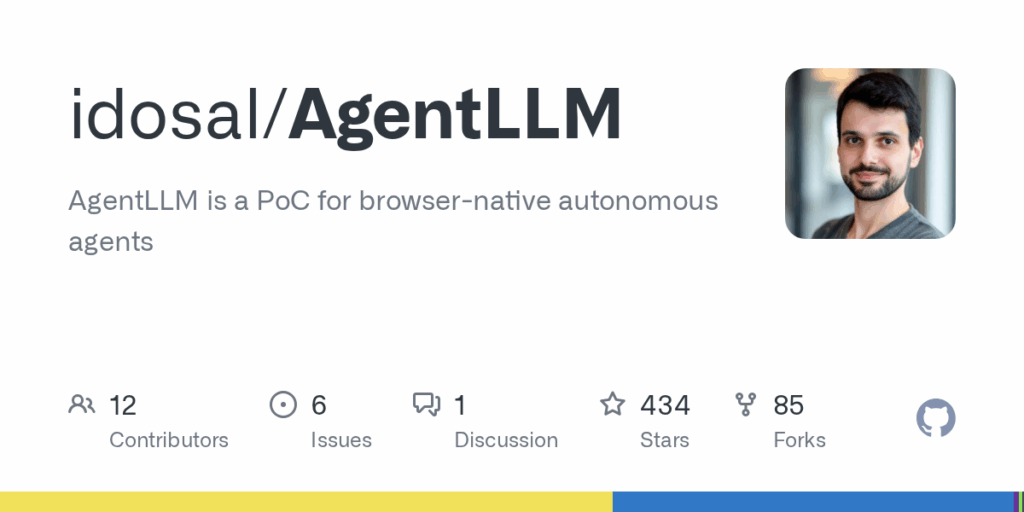AgentLLM
Basic Information
AgentLLM is a research-oriented proof of concept that demonstrates running autonomous, goal-oriented language agents entirely in the browser using embedded open-source large language models. The project adapts the AgentGPT workflow to operate with a local, browser-native LLM backend rather than remote APIs, showing that models can perform iterative task generation and execution loops on client hardware. It focuses on a sandboxed environment that avoids external tool integrations, enabling controlled experiments in agent planning and decomposition. The README emphasizes that this is experimental and not production-ready, and it highlights a live demo and a browser requirement of modern Chromium builds with WebGPU support. The repository includes instructions for running the demo, Docker and docker-compose options, local development setup, and a manual installation path that uses Node.js, environment variables, and Prisma-based database setup.








